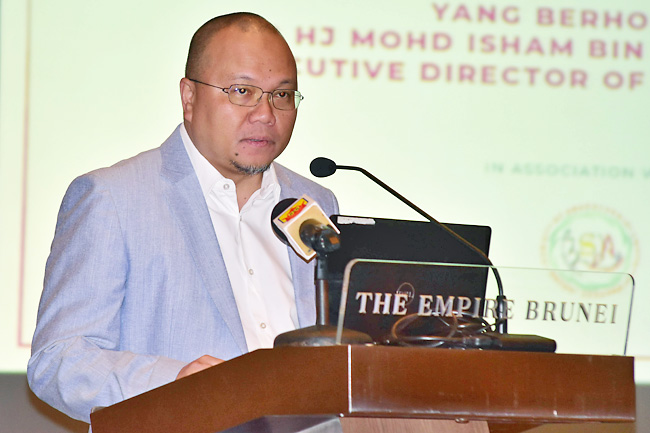The importance of high-quality anaesthetic care was underscored by Minister of Health Dato Seri Setia Dr Haji Mohd Isham bin Haji Jaafar at the opening ceremony of the first-ever ‘Anesthesia Conference: Anaesthesia Update 2023’, at The Empire Brunei yesterday.
The minister said with advancement in anaesthesia, “surgery has now extended to increasingly complex procedures on patients who might previously have been denied operations based on age or illness”.
He said no patient, no matter how serious their condition, will ever be “too sick” for general anaesthesia or for urgently required surgery thanks to these advancements.
“Furthermore, with modern neuro muscular blocking agents and reversal agents, patients now have considerable improvement in spontaneous recovery post- surgery,” he said.
“In the fast-paced world of modern medicine, anaesthesia serves as the unsung hero, often working behind the scenes but always at the forefront of ensuring safe and effective surgical interventions.
“It is the art and science of relieving pain, easing anxiety, and maintaining physiological stability during procedures.

“Without the expertise of anaesthesiologists and the support of our dedicated teams, the monumental achievements of surgery would be impossible,” said the minister.
Anaesthesia, in its many forms, has come a long way since its inception in 1846.
“The development of new anaesthetic agents and techniques have minimised the risks associated with surgery and improved patient outcomes.”
The progress, he said “we’ve made has not only revolutionised the practice of surgery but also transformed patient care”.
The end of the 20th Century saw major advancements in everyday anaesthesia, including the contributions of computer technology, microelectronics and advances in drugs, he said.
The minister added, “Anaesthesiologists can now visualise nerves and surrounding structures in real time, improving accuracy and reducing complications.
“But perhaps one of the most exciting developments in the field of anaesthesia is the integration of artificial intelligence (AI) and machine learning.
“These technologies have opened up new frontiers, enabling us to predict patient responses to anaesthesia, tailor drug dosages, and optimise treatment plans.
“With AI assisting us, we can now provide personalised anaesthesia care, taking into account individual patient characteristics, genetic makeup and previous medical history.” – James Kon




